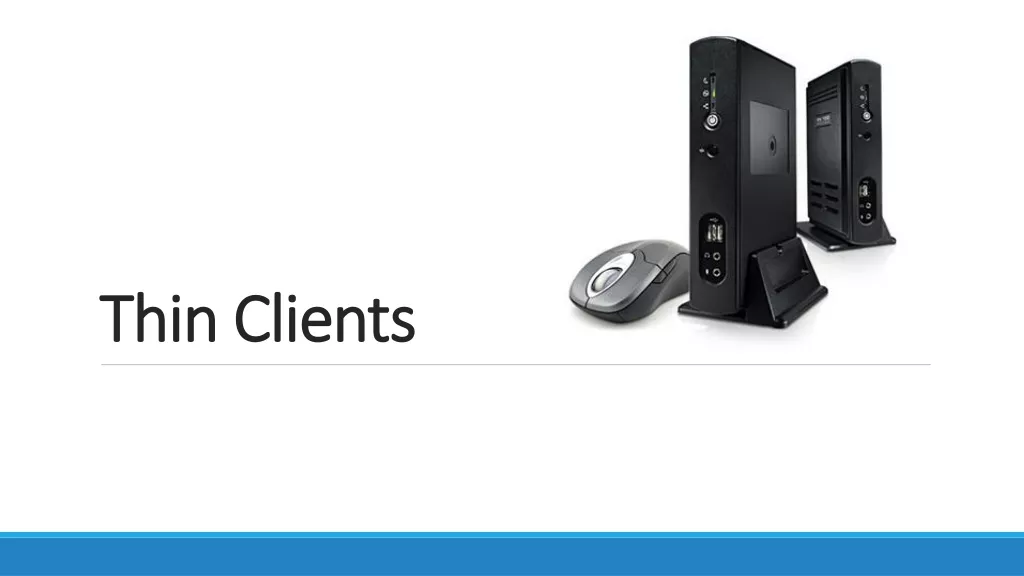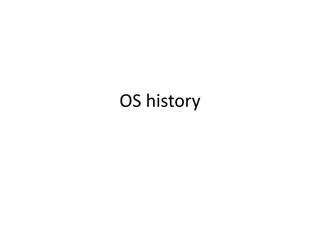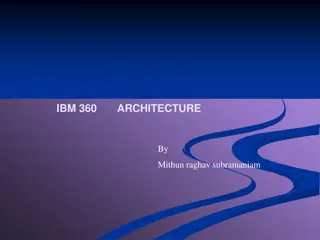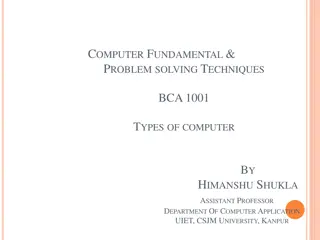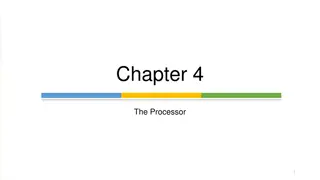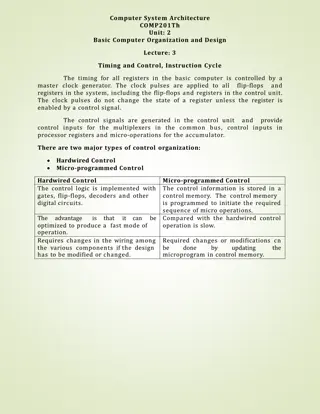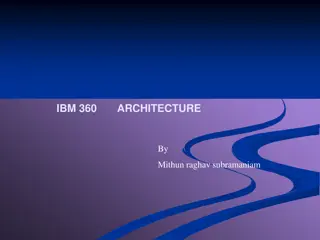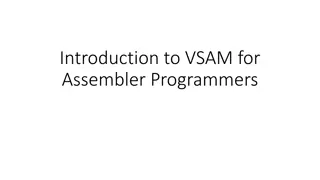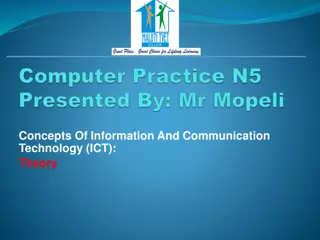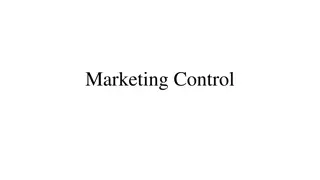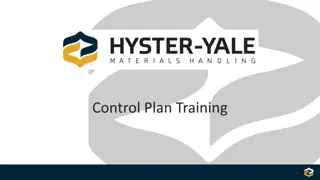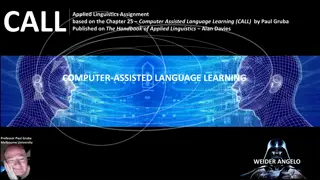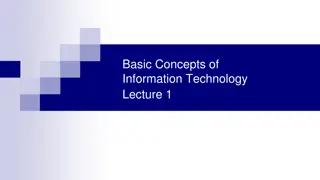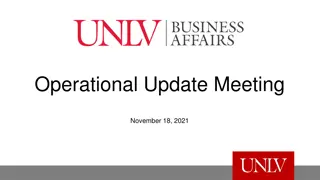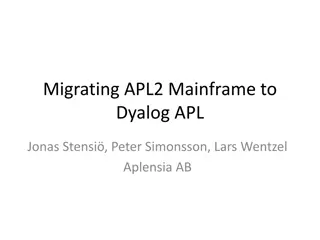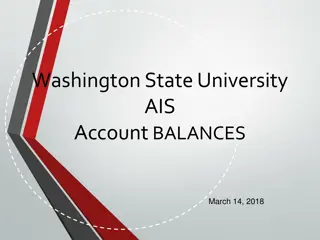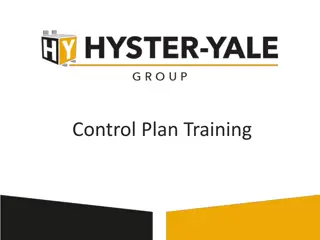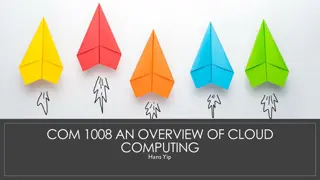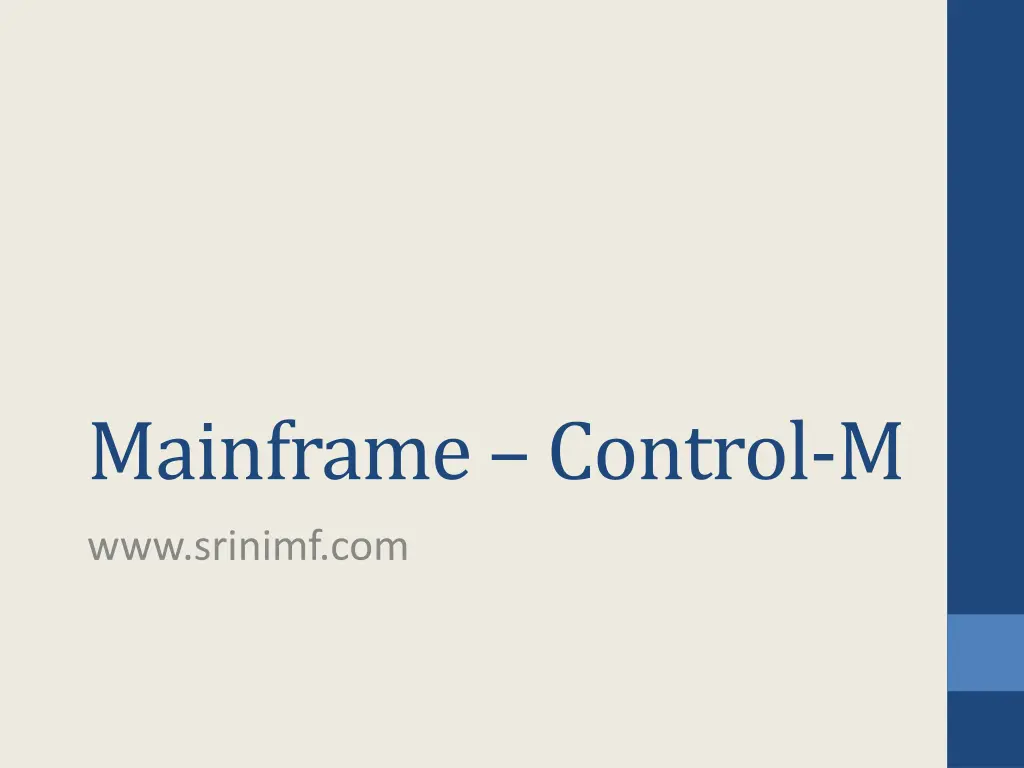
Control-M Mainframe Automation Solution Overview
Gain insights into Control-M, a robust mainframe automation solution, including its architecture, control agents, servers, and job definitions. Explore how Control-M streamlines job scheduling, execution, monitoring, and management across various platforms. Learn about its enterprise management capabilities, job scheduling criteria, and user access rights considerations.
Download Presentation

Please find below an Image/Link to download the presentation.
The content on the website is provided AS IS for your information and personal use only. It may not be sold, licensed, or shared on other websites without obtaining consent from the author. If you encounter any issues during the download, it is possible that the publisher has removed the file from their server.
You are allowed to download the files provided on this website for personal or commercial use, subject to the condition that they are used lawfully. All files are the property of their respective owners.
The content on the website is provided AS IS for your information and personal use only. It may not be sold, licensed, or shared on other websites without obtaining consent from the author.
E N D
Presentation Transcript
Mainframe Control-M www.srinimf.com
Control-M Agent Run under Windows NT/200, Unix, etc Receive order from Control-M Server Submit, monitor, control and manage jobs Send result to Control-M Server
Control-M Server It s the engine of Control-M Contain all calendars Contain all job definitions Activate and Control the up to plan
Enterprise Management Focal point of control Responsible for cross-platform dependencies Standard GUI for all the Production platforms Give graphic tools to develop jobs
Job Definitions What ? Where ? When ? Resource Requirements Flow Control ? Results Control
What do we schedule Unix shell scripts /export/home/hipfeed/interfaces/scripts/ft_process.pl NT Batch Files (.bat .cmd) d:\prod\Ctm\Copy_Logs\del_logs.cmd Executable Operator Commands
Contd Execute Command ls -l
Where do we run Which server do we use
Contd Does it have a Control-M Agent Is it a Production or a Uat agent
Who can execute it is needed to run the job Which user login
Contd Does the user login have access right to run the job.
When : Date & time Scheduling Criteria Specific days of the month/week/period Automatic holiday processing The nth workday Time window The nth last workday When Job can be executed in several times in cyclic mode with personnal interval
What is a condition Is a Flag sent in PREREQUISITE CONDITIONS BOX under Enterprise ControlStation A condition depends to the ODAT (Control-M Systeme Date) This Flag can be expected by one or several other jobs. It is not a goto command
Benefits Cross-platform automation flow No need for manual intervention Create a Business Process View Create a Focal Point of Control
Resource Requirement Prevents resource contentions between jobs Provides workload balancing Eliminates contention bottlenecks
Results Control Capture Standard OUTPUT in Sysout Sysout contain and Error Code will be tested Shout Message can be sent to User Mail, Distribution List, Console ... Rerun Facility Runs same job n times Runs another job Stop a Cyclic Job Results Control Sysout contain and Error Code will be tested
Schedule PLAN To be executed, a job should be up to plan. A plan is a period of 24 hours The plan begins at 7:00 AM (for that example) The plan stops at 6h59 AM the following day The Control-M System Date isn t a System Date
Results Analysis CONTROL-M is capable of detecting errors and react to them dynamically Analyze contents of the Job Log Match Line of statement with statement ouput and errors (contain of sysout) Actions : Set completion status to Ok or NOTOK Set a parameter value (counter) Create or delete a condition Force a job to run Notify a user or console message Rerun the job Stop Cyclic
What do we need For the Control-M Diagram A Organization Chart of the treatments An Application Architecture Diagram For Each Job Definitions Command Line or Executable User Login Scheduling Criteria (Date, Time, Calendar...) Error code and Error Message Received and To be Sent Actions List, Order for each error
Thank You www.srinimf.com


